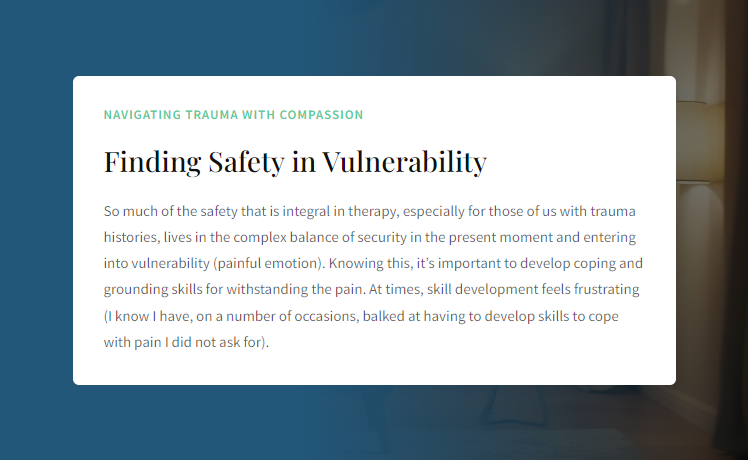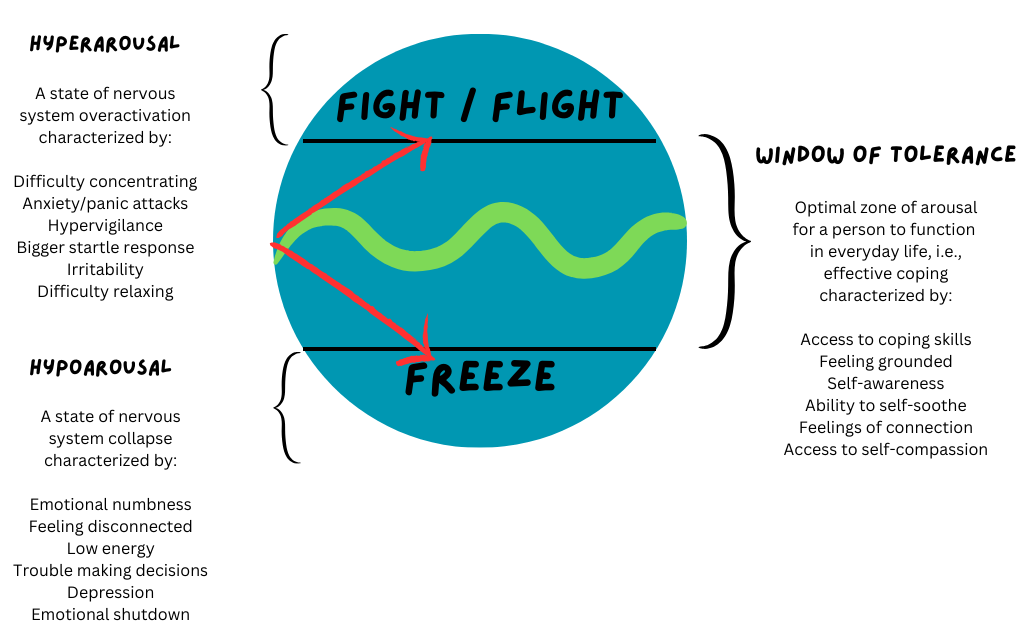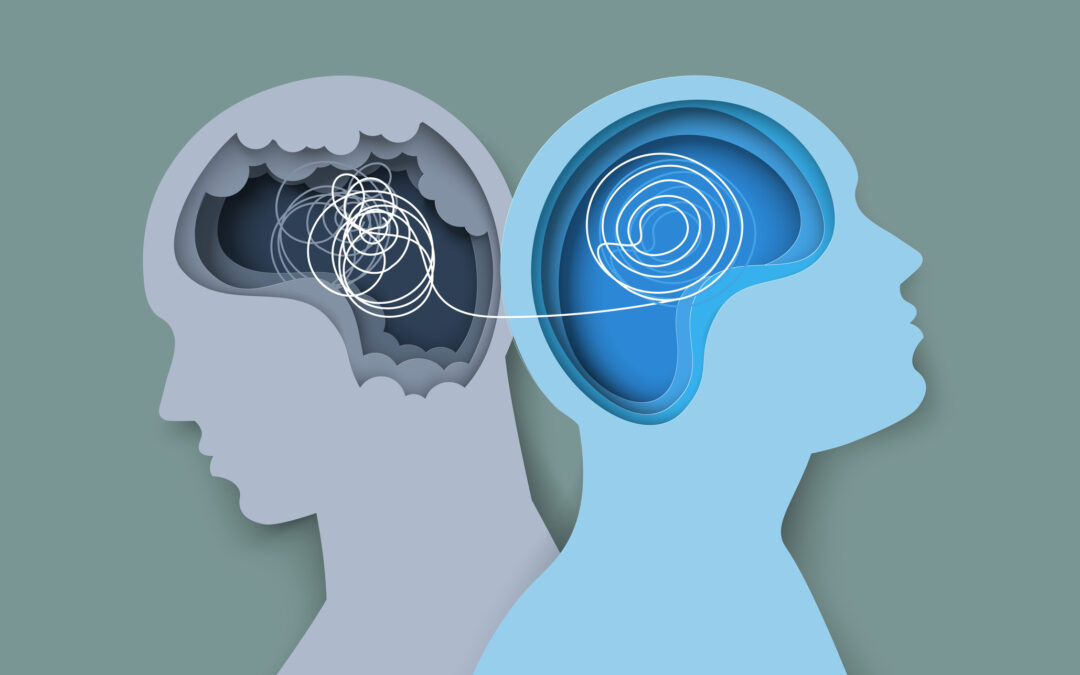
Strengthening Coping Strategies
Widening the Window of Tolerance
The more adept we become at coping with distress, the more we strengthen our ability to experience the here-and-now sense of safety in therapy as we face our pain. When your therapist helps you ground, develop coping skills, notice the present moment, etc., they are helping you widen what we call the ‘Window of Tolerance.’ Maximum therapeutic benefit in an appointment with your counselor (or in coping outside session) happens when you are able to maintain awareness of the both/and of pain and safety.
Practical Applications
Everyday Examples of Staying Within the Window
Remaining inside your window of tolerance doesn’t mean you don’t experience emotions. It means we minimize the distress that occurs when a painful emotion is present. Essentially, existing within that window means you can experience sadness, fear, or anger without triggering a survival (fight/flight/freeze) response. If you have ever become frustrated with a distracted driver while maintaining your ability to focus on the road, become upset with a partner and took space away to process emotions before resolving conflict, or made a mistake on a project and were able to reframe negative thoughts about yourself – You have remained within your window.
Reflections on Progress
Becoming a Harbor of Safety
Progress in therapy does not mean something isn’t sad or scary over time. It means you become your own harbor of safety and remain compassionate and present with yourself as you heal. Safety is not always necessarily the absence of danger; safety is your ability to connect with yourself, your support system, or your coping skills when danger is present.

The Balance of Safety and Vulnerability in Therapy
In therapy, especially for those with trauma histories, safety is a delicate balance between feeling secure in the present moment and being open to vulnerability. This balance is crucial for healing and growth.
Expanding the Window of Tolerance
When your therapist helps you ground yourself, develop coping skills, and stay present, they are helping you expand your Window of Tolerance. This allows you to experience emotions without triggering a survival response, enabling you to process and heal more effectively.
Developing Coping and Grounding Skills
Developing coping and grounding skills is essential for managing painful emotions. Although it can be frustrating to build these skills, they are vital for maintaining a sense of safety and stability during therapy.

Making New “Glory Days”: How to Stop Obsessing About Youthful Successes
“Ahh, the good ol’ days.” How often have we heard or uttered this familiar phrase? It can be a source of great pleasure and amusement to reminisce on a time when we were younger, remembering a special event or activity. We tend to look at our past experiences through...

When to Worry: Recognizing Signs of Trauma in Your Loved Ones
Over the past several years, there have been numerous traumatic events making news all across the country. From incidents of mass violence to devastating natural disasters, hundreds of thousands of Americans have experienced or witnessed a disastrous or...

6 Reasons Why Yoga Might Be the Missing Link in Your Mental Health Toolkit
We invited our friend, Eve Parker at Simply Yoga, to share this guest blog, which provides information about the positive impact of yoga on a person's mental health and overall wellness. After reading the article, if you’d like more information about Simply Yoga, we...

Q & A with TMS NW: Everything You’ve Wanted to Know about Transcranial Magnetic Stimulation (TMS)
Have you tried (and tried) medication management for your depression or OCD but never received full results? We invited Piper Buersmeyer, Julia Swofford, and Brendan Roe from TMS NW to provide this Q & A about Transcranial Magnetic Stimulation (TMS), a...

You Are Not Alone: Finding Support as a Male Sexual Abuse Survivor
On an almost daily basis we hear stories of female sexual harassment and abuse in the media. Sadly, male sexual abuse is fairly common, but the issue is under-reported by the media and society in general.One US-based study found that 1 in 6 boys experience...

